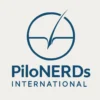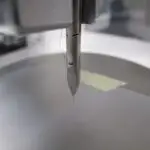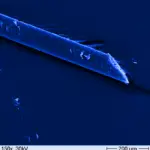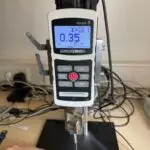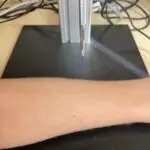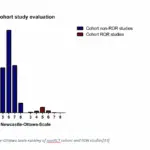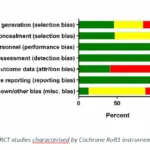(from 16.09.2025)
1. Ankersen J, Faurschou I, Hougaard T. H, Doll D, Oetzmann von Sochaczewski C, Sørensen M, et al.
Long-term outcomes after cleft lift surgery for pilonidal sinus disease in post-pubertal adolescents: data from a prospective Danish cohort. Colorectal Disease. 2025;27(1):e17169.
Significance of the work: This prospective Danish cohort study evaluates long-term outcomes after cleft lift surgery in post-pubertal adolescents with pilonidal sinus disease. The results indicate low recurrence rates and minimal complications, supporting the procedure’s effectiveness in this patient group.
2. Doll D.
Kommentar zur ESCP-Leitlinie zur Behandlung der Pilonidalsinus-Erkrankung. coloproctology. 2025;47:154-6.
Significance of the work: This commentary highlights important aspects of the ESCP guidelines for pilonidal sinus disease management. It criticizes the given recommendations for clinical practice based on current evidence.
3. Doll D, Faurschou IK, von Sochaczewski CO.
The importance of updating background information in pilonidal sinus disease research: commentary on Darnis et al. depilation Find: Khubezov 2020; Allam 2020. 2025;40(1):166-7.
Significance of the work: The authors stress the importance of continuously updating background information in pilonidal sinus disease research to ensure accuracy and relevance. The commentary criticizes earlier studies on depilation and calls for more rigorous methodologies.
4. Doll D, Haas S, Faurschou IK, Hackmann T, Braun-Muenker M, Oetzmann von Sochaczewski C.
Unveiling Observation Bias in Pilonidal Sinus Disease Studies: A Comparative Analysis of Study Designs and Follow-Up Protocols. Polish Journal of Surgery. 2025;97(2):1-6.
Significance of the work: The extent of observation bias in ROR studies compared to RCTs and non-RCTs was unknown. Analyzing the largest therapeutic cohort globally reveals ROR recurrence rates potentially deflated by three to fourfold relative to RCTs or non-RCT findings. Any return-on-recurrence situation should be avoided.
5. Doll D, Haas S, Faurschou IK, Hackmann T, Heitmann H, Braun-Münker M, et al.
Pediatric pilonidal sinus disease: Recurrence rates of different age groups compared to adults. Surgery Open Science. 2025;23:50-6.
Significance of the work: The study compares recurrence rates between pediatric and adult populations with pilonidal sinus disease. Age-specific differences were identified, suggesting tailored treatment and follow-up strategies for different age groups.
6. Doll D, Hackmann T, Haas S, Laurberg S, Pilonidal Network for Expertise R, Development.
Evaluation of Outcomes for Karydakis Operation for Pilonidal Sinus Disease-Comparison of Original Reports With Later Results. World J Surg. 2025;49(3):584-9.
Significance of the work: This evaluation of the Karydakis operation compares original outcome reports with later follow-up data. The study reveals discrepancies between the original Karydakis 73/92 works and the world literature.
7. Doll D, Maak M, Faurschou IK, Hackmann T, von Sochaczewski CO, Braun-Münker M, et al.
Impact of surgical case load on recurrence rates in pilonidal sinus disease: a cross-study data synthesis. le+. 2025;40(126):1-17.
Significance of the work: By synthesizing data across multiple studies, this research demonstrates that higher surgical case loads are associated with reduced recurrence rates in pilonidal sinus surgery. This suggests experience and volume impact surgical outcomes.
8. Doll D, Maak M, Seifert J.
[Post-primary Limberg flap-A new approach in pilonidal sinus surgery]. Chirurgie (Heidelb). 2025;Epub.
Significance of the work: A novel post-primary Limberg flap technique for pilonidal sinus surgery is introduced with preliminary evidence suggesting improved healing and reduced recurrence. The RR is low and plausible
9. Doll D, Ommer A, Oetzmann von Sochaczewski C, Safadi F.
Sinus pilonidalis. Chirurgische Proktologie. 42025. p. 431-68.
Significance of the work: This comprehensive review covers the pathophysiology, diagnostic approaches, and treatment options for pilonidal sinus disease. It provides an up-to-date synthesis of current knowledge to guide clinical decision-making.
10. Doll D, Seifert J, Brengelmann I, Kuntze M.
The Relationship Between Sweat Response, BMI, and Physical Activity: Implications for Pilonidal Sinus Disease. Turkish Journal of Colorectal Disease. 2025;35(2):55-8.
Significance of the work: This investigation explores the relationship between sweat response, BMI, and physical activity, examining their potential roles in pilonidal sinus disease pathogenesis.
11. Doll D, Seifert J, Maak M, Oetzmann von Sochaczewski C.
One century of pilonidal sinus research: trends in study size and the declining share of randomized controlled trials. coloproctology. 2025;Epub:1-8.
Significance of the work: An historical analysis of pilonidal sinus research trends reveals increasing study sizes but a decline in the proportion of randomized controlled trials. This shift may affect the quality and robustness of evidence over time.
12. Faurschou IK, Ankersen JL, Pedersen N, Sorensen MJ, Friis ML, Pedersen AG, et al.
Gender-specific outcomes in pilonidal sinus disease: Female outcomes after cleft lift surgery in a large prospective Danish cohort. Colorectal Dis. 2025;27(2):1-8.
Significance of the work: This large prospective cohort study examines gender-specific outcomes after cleft lift surgery, reporting favorable results for female patients. The findings suggest potential sex-related differences in disease course and treatment response. Female PSD patients seem to represent a subcategory of patients at higher risk of treatment failure and should be dealt with as such. Our study shows, that only few female patients initially present with the need for extensive surgery. A common occurrence of prolonged healing and recurrence, leads to a recommendation of minimal invasive approach when possible.
13. Maak M, Morsdorf P, Bari L, Braun-Munker M, Scharonow M, Orth M, et al.
Intergluteal fold depth has no influence on pilonidal sinus disease development. 2025;41(2):130-4.
Significance of the work: This study finds no significant influence of intergluteal fold depth on pilonidal sinus disease development in contrary to the Akinci 2009 study.
14. Oetzmann von Sochaczewski C, Heitmann H, Izbicka K, Braun-Münker M, Maak M, Doll D.
Altersabhängige Veränderungen der axialen Haarfestigkeit in der Pathogenese des Pilonidalsinus. coloproctology. 2025;47(1):29-33.
Significance of the work: Research into age-dependent changes in axial hair strength suggests these alterations may contribute to pilonidal sinus disease pathogenesis. The findings describe mechanical factors influencing disease onset at younger age.
15. Pedersen N, Faurschou I, Ankersen J, Sørensen M, Friis ML, Pedersen G. A, et al.
Distinct recurrence patterns according to disease manifestation in pilonidal sinus disease treated with cleft lift surgery at 5 years' follow-up in a large prospective Danish cohort. Colorectal Dis. 2025;27(1):1-7.
Significance of the work: Distinct recurrence patterns related to disease manifestation were identified in a five-year follow-up study of patients treated with cleft lift surgery. The results may inform personalized management and prognosis assessment.
16. Safadi MF, Doll D.
Letter re: "Pathological Examination in Pilonidal Sinus Surgery: Evaluating Necessity and Cost-Effectiveness: A 10-Year Retrospective Analysis". Am Surg. 2025;91(4):664-5.
Significance of the work: This letter discusses the necessity and cost-effectiveness of routine pathological examinations in pilonidal sinus surgery. Based on a 10-year retrospective analysis, it offers considerations for optimizing resource use without compromising care quality.
17. Corturillo G, Jovanovic M, Rohleder S, Heydweiller AC, Muensterer OJ, Doll D, Oetzmann von Sochaczewski C.
Practice patterns of paediatric surgeons on treating pilonidal sinus disease - a national survey study. Int J Colorectal Dis. 2025;40:165.
Significance of the work: The study describes the current approach to pilonidal sinus disease in children and adolescents by German paediatric surgeons. Based on the responses of 40 paediatric surgical institutions, it found that they prefer traditional surgical approaches to the disease, but pit-picking was gaining ground.
18. Doll D, Haas S, Faurschou IK, Hackmann T, Heitmann H, Braun-Münker M, Oetzmann von Sochaczewski C.
Pediatric pilonidal sinus disease: Recurrence rates of different age groups compared to adults. Surg Open Sci. 2025;23:50-56.
Significance of the work: The study used the available literature to assess the recurrence rates of paediatric patients in comparison to adults. Paediatric pilonidal sinus patients had substantially increased recurrence rates compared to adults and recurrences occur earlier than in adults.
19. Oetzmann von Sochaczewski C, Hackmann T, Heitmann H, Braun-Münker M, Maak M, Doll D.
Pilonidal Sinus Recurrence Rates in Young Adults—Similar to Children or Adults? Surgeries. 2025;6:60.
Significance of the work: Based on tendencies in the literature to expand treatment concepts for children and adolescents to young adults, the study investigated whether recurrence rates and temporal distribution of recurrences of young adults would follow those of adults or those of paediatric patients. It found that pilonidal sinus disease in young adults follow the same recurrence dynamics as in adults.
(publications from January to August 2025)
